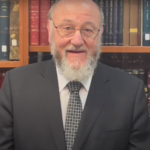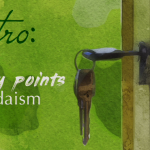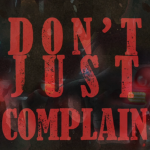Yitro archive
-
Parshat Yitro: Is it possible to see sounds?
Transcript: Is it possible to see sounds? From Parshat Yitro we learn that the answer is, yes. Immediately after the Torah tells us about the extraordinary encounter that the nation Read more... -
Yitro: Creation & Exodus – two paradigms for connecting with Hashem
Transcript Two very different reasons are given for keeping shabbat. In Parshat Yitro, in the Ten Commandments, the fourth commandment is to keep shabbat. And a reason is given (Shemot Read more... -
Yitro: The best entry points to greater Jewish engagement
Transcript: What is the best entry point through which more people can engage better with their Judaism? Parshat Yitro commences with the words, “Vayishma Yitro,” – “Yitro heard.” (Shemot 18:1). Read more... -
Yitro: What is the antidote to jealousy?
The Chief Rabbi’s D’var Torah for Parshat Yitro Transcript What is the antidote to jealousy? In Parshat Yitro the Torah tells us how Moshe’s father in law Yitro arrived at Read more... -
D’var Torah: Yitro
Don’t just complain! Don’t just complain about everything that’s wrong. We learn this in Parshat Yitro. Rashi tells us that one of Yitro’s seven names was ‘Yeter’, which means additional. Read more... -
D’var Torah: Parashat Yitro
This week, the Chief Rabbi asks whether we are really ‘listening’. Is it possible for anyone to see sound? There are three different terms used in the Torah for ‘listening’. Read more... -
D’var Torah: Parashat Yitro
In this week’s D’var Torah, the Chief Rabbi explains how great people welcome constructive criticism. Great people welcome constructive criticism. This was certainly the case with regard to Moshe Rabbeinu. Read more... -
D’var Torah: Parashat Yitro
A lesson from Moses to every parent: The Chief Rabbi presents his insights into Parashat Yitro. Following his experience at the burning bush, Moshe went down to Egypt and led Read more... -
D’var Torah: Parashat Yitro
In Parashat Yitro, we learn that Moshe went out to greet his father-in-law, to be subsequently told that ‘the man’ enquired after the well-being of the other. The Chief Rabbi Read more...










